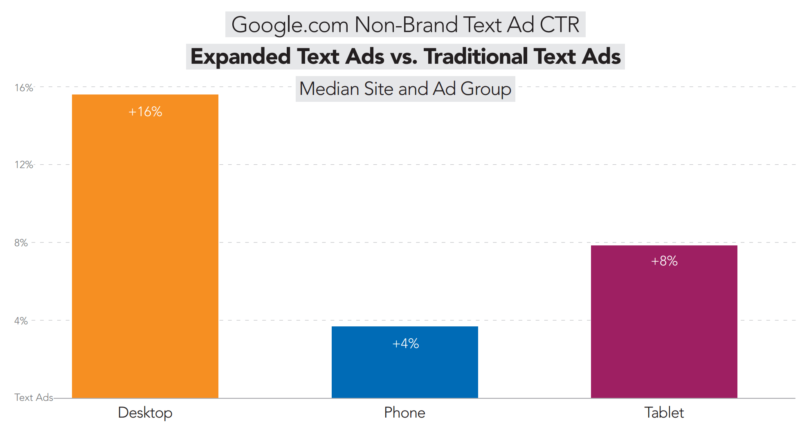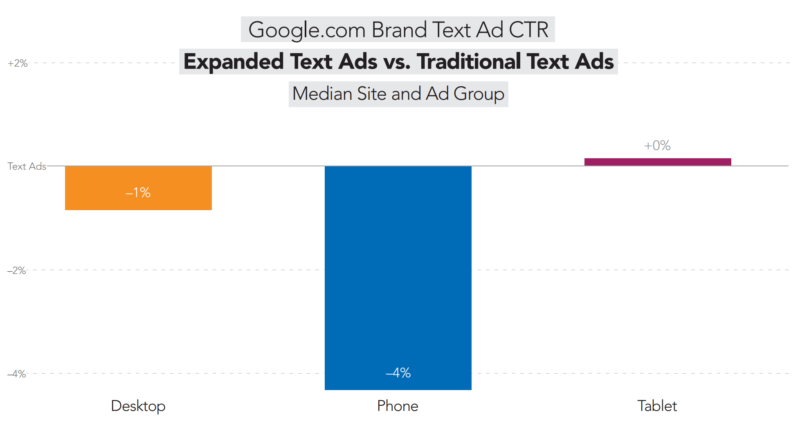Merkle’s early data on expanded text ad CTRs: Results are mixed
The agency looked at expanded text ad performance from both brand and non-brand traffic.
Merkle has released early results on click-through rates of expanded text ads relative to standard text ads in its Q2 Digital Marketing Report. The agency began participating in the expanded text ads beta in April and analyzed the longer ad format’s impact on click-through rate (CTR) across thousands of ad groups.
When Google first announced that expanded text ads (ETAs) were coming, the company touted as much as a 20-percent lift in click-through rates on expanded text ads. Merkle looked at ad performance for non-brand traffic and brand traffic.
For non-brand queries, early results showed expanded text ads drove a 16-percent lift for the median site and ad group on desktop. Mobile phones, however, saw just a four-percent bump in CTR and tablets an eight-percent increase overall. Merkle added that individual results did vary widely, with several advertisers seeing lower CTRs from expanded texts on non-brand traffic from some devices.
On brand traffic, expanded text ad click-through rates were nearly in line with, or slightly worse than, standard text ads. ETA click-through rates were four percent lower than standard text ads on mobile phones, flat on tablet and off one percent on desktop.
Merkle points out a few caveats when looking at this data. Little is known about the auction conditions for ETAs, such as how many expanded text ads display on a results page, how often product listing ads showed with expanded text ads and whether there is a difference in the queries that trigger ETAs versus standard ads during this period when both ad formats are running simultaneously. Another thing to note is that the frequency and mix of extensions that show with ads can vary significantly with each impression.
ETAs were receiving 47 percent of total impressions in the ad groups in which they were included, Merkle reported. Merkle’s client base skews large retailer.
These are early results, and more analysis will be forthcoming, as ETAs are now available to all advertisers, but they raise questions about the testing environment advertisers are supposed to be making decisions in over the next couple of months, as well as the long-term upside of ETAs. Google has said the key impetus for the new longer format was the idea that giving mobile users more information up front will give them more confidence to click. With that, it’s surprising to see these phone CTR results and to see desktop outperform phone.
It’s also worth pointing out that distinct mobile (preferred) ad copy is not supported with expanded text ads, meaning the same messaging is served across all devices.
The full Digital Marketing Report includes more on paid and organic search, comparison shopping engines and display and is available for download (with registration).
Contributing authors are invited to create content for Search Engine Land and are chosen for their expertise and contribution to the search community. Our contributors work under the oversight of the editorial staff and contributions are checked for quality and relevance to our readers. The opinions they express are their own.
Related stories
New on Search Engine Land


